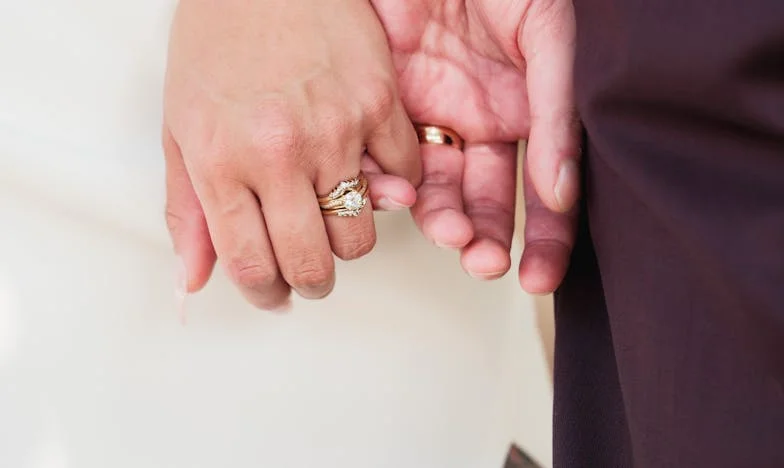Fighting for Emily: The Eighth Sense of a Mother
“She won’t make it through the night, Mrs. Parker. I’m so sorry.”
I stood alone in the sterile hallway, the words of the neonatologist ringing in my ears as if he’d shouted them through a megaphone. My husband, Mark, wouldn’t meet my eyes. His arms hung limp by his sides, his face as white as the hospital bedsheets. My mother, always the practical one, stood with her hand on my shoulder, squeezing just a bit too hard, as if she could press sense into me. Through the glass, I could see my daughter—Emily—barely bigger than a loaf of bread, wires and tubes everywhere, her chest fluttering up and down with each machine-assisted breath.
“Laura,” Mark whispered, “maybe we should listen to them. She’s suffering. We have to think about what’s best for her.”
My heart twisted, but I shook my head. “No. She’s fighting. I can feel it. She’s mine. I can’t let her go.”
I remembered the day Emily was born, three months too soon. Mark was at work, and it all happened so fast—my water broke, the ambulance, the blur of faces, the cold, bright lights. When I woke, they told me she weighed one pound, two ounces. They told me babies like her just didn’t survive. Not here, not with our insurance, not with the state’s budget cuts. But when I saw her—so tiny, so fragile—I felt something deep inside, a stubbornness I’d never known. They called it denial. I called it hope.
The days became weeks. Doctors cycled through, white coats and tired eyes. They spoke in hushed voices at the end of the bed. “Severe brain bleed… unlikely to walk or talk… quality of life… you have options.”
I learned to read their faces, the way they softened their voices when delivering bad news. Mark started spending longer hours at work, avoiding the hospital. My mother brought casseroles and pamphlets about hospice care. Friends stopped texting. Neighbors crossed the street when they saw me coming. I was the mother who wouldn’t let go.
The nurses were kinder. “She’s a fighter,” one whispered during a midnight feeding. “She’s not supposed to be here, but she is.”
My mother cornered me in the family lounge, her voice low but sharp. “Laura, you’re not thinking clearly. You’re exhausted. The doctors know what they’re talking about.”
I clenched my fists. “She’s my daughter. If I don’t fight for her, who will?”
Arguments with Mark became routine. “We’re losing ourselves, Laura,” he said, voice cracking. “I can’t watch you suffer like this. I can’t watch her suffer.”
But I kept going. I pumped milk every two hours, even when my body ached. I read to Emily through the plastic walls of her incubator—Dr. Seuss, Goodnight Moon, the Bible. I sang lullabies until my throat burned. When doctors suggested we sign a DNR, I refused. “Not yet,” I said. “Not while she’s still fighting.”
One night, Emily’s heart rate plummeted. Alarms blared, nurses rushed in. I stood frozen as they worked, shouting orders, pressing tiny paddles to her chest. My mother sobbed in the corner. Mark buried his face in his hands. When the monitors finally steadied, a nurse turned to me, eyes shining. “She pulled through.”
A week later, an MRI showed less brain damage than they feared. The neurologist, Dr. Singh, was careful. “There’s still risk. Delays, disabilities. But… she’s surprised us.”
Mark started visiting again. He brought a tiny stuffed bear and placed it in Emily’s isolette. My mother sat beside me, knitting a pink hat. The nurses called Emily “the miracle baby.”
At three months old, Emily left the NICU. She weighed five pounds. The doctors warned us—she might never walk, she might never talk, she might need care for the rest of her life. But she was alive.
The first year at home was chaos. Physical therapy, doctor’s appointments, feeding tubes, sleepless nights. Mark and I fought about money, about hope, about what we owed to Emily and to ourselves. Some days, I envied other mothers, whose babies hit milestones with ease. Some days, I resented my own stubbornness.
Then one morning, I heard it—a soft giggle from Emily’s crib. I rushed in to see her kicking her legs, waving her arms, her eyes bright. I laughed and cried at the same time. She reached for me, tiny fingers wrapping around mine.
I took Emily to the park, ignoring the stares from other parents as I fed her through a tube. I cheered at her first steps, months later than other kids but sweeter for the waiting. I learned to ignore the pitying looks, the whispered judgments. I joined online groups of other parents like me—warriors in the trenches, fighting for children the world had written off.
Mark and I found our way back. He apologized for giving up, and I forgave him. My mother held Emily on her lap, tears in her eyes. “You were right,” she whispered. “You knew. I’m sorry I doubted you.”
Emily started preschool at three, her walker covered in stickers. She learned to say “Mama” and “Dada.” She painted messy rainbows and sang off-key songs. She was different, yes—but she was here.
Sometimes I wonder what life would be like if I’d listened to the experts, the neighbors, even my own family. If I hadn’t trusted that stubborn, aching, hopeful part of me—the eighth sense that told me Emily had a chance.
Maybe that’s what being a mother is: loving so fiercely, so blindly, that you become the only voice your child has when the world says no.
Would you have fought for Emily? Or would you have let her go, trusting the odds and the experts? What would you have done if you were me?
